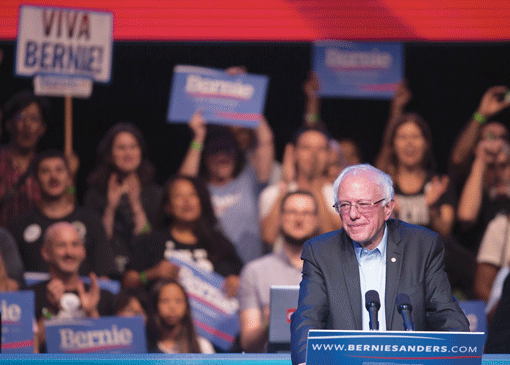Let’s travel back to a perilous day in our country’s history: Dec. 5, 2008. Unbeknownst to the public, or to our elected representatives, the Federal Reserve, the nation’s central bank, provided $1.2 trillion to bail out the most needy banks in the land.
“Bankers didn’t mention that they took tens of billions of dollars in emergency loans at the same time they were assuring investors their firms were healthy. And no one calculated until now that banks reaped an estimated $13 billion of income by taking advantage of the Fed’s below-market rates,” according to a November 2011 story in Bloomberg Markets magazine.
Based on 29,000 pages of Fed documents and reams of central bank transactions, from 2007 to 2009, released under a Freedom of Information Act request, Bloomberg Markets analyzed the truly mind-boggling sums of money in the bank bailout.
“Saved by the bailout, bankers lobbied against government regulations, a job made easier by the Fed, which never disclosed the details of the rescue to lawmakers, even as Congress doled out more money and debated new rules aimed at preventing the next collapse,” the Bloomberg story continued. “The amount of money the central bank parceled out was surprising even to Gary H. Stern, president of the Federal Reserve Bank of Minneapolis from 1985 to 2009, who says he ‘wasn’t aware of the magnitude.’ It dwarfed the Treasury Department’s better-known $700 billion Troubled Asset Relief Program, or TARP. Add up guarantees and lending limits, and the Fed had committed $7.77 trillion as of March 2009 to rescuing the financial system, more than half the value of everything produced in the U.S. that year.”
That number should be repeated: $7.77 trillion from the Fed to shore up the financial system.

At the same time as the Fed was opening its coffers to banks and large corporations, millions of families were losing their homes, jobs and life savings in the worst financial crisis since the Great Depression. However, the U.S. government and the Federal Reserve were not coming to rescue them. In the midst of the Great Recession, we saw capitalism failing the working and middle classes, while the super wealthy strata of society enjoyed socialized risks and privatized rewards.
To remedy the widespread disillusion about the equity of American society, voters should elect a president in 2016 who has been steadfast and clear about making this country work for everybody, and not just for the billionaire class. Of course, that is Sen. Bernie Sanders, of Vermont.
Last week, Sanders spooked the Hillary Clinton campaign by coming within a whisker of winning the Iowa caucuses. (As the American Jewish World went to press this week, voters were casting ballots in New Hampshire, where Sanders was leading in the major polls.)
Addressing his amped-up partisans on caucus night, Sanders explained the reason for his success in Iowa, “the reason I believe we’re going to do so well in New Hampshire and in the other states that follow, the reason is the American people are saying no to a rigged economy. They no longer want to see an economy in which the average American works longer hours for low wages, while almost all new income and wealth is going to the top 1 percent.
“What the American people understand is, this country was based and is based on fairness. On fairness. It is not fair when the top one-tenth of 1 percent today owns almost as much wealth as the bottom 90 percent. It is not fair when the 20 wealthiest people in this country own more wealth than the bottom half of America. So are you guys ready for a radical idea? Well, so is America. And that radical idea is: We are going to create an economy that works for working families, not just the billionaire class.”
The Sanders surge has been one of the great stories of the 2016 election cycle — although it has been given short shrift by the mainstream press. Sanders, a white-haired grandfatherly figure at 74, has “struck electoral gold among America’s youth,” The Independent, the British newspaper, reported last week. “In last week’s Iowa caucus, Mr. Sanders secured 84 percent of support among voters aged between 17 to 29, with Ms. [Hillary] Clinton getting just 14 percent.”
Last week, Sanders spoke to an enthusiastic crowd in the gymnasium at Franklin Pierce University in Rindge, N.H. The story in The Independent noted that the sound system was blasting the late David Bowie’s “Young Americans,” and Sanders “received huge, roaring cheers.”
“I think he understands what it’s like to be a young person,” 18-year-old Shawn Titon told the newspaper. “It’s easy for adults to forget.”
And Megan Crossman, a 20-year-old psychology student, said she liked Sanders’ position on free public college tuition: “The middle class does not have a lot of money. He wants to raise taxes but I don’t think it will be a problem.”
In fact, Sanders has advocated a tax on financial transactions. As he said in Iowa: “We are going to impose a tax on Wall Street speculation. The greed, the recklessness and the illegal behavior of Wall Street drove this economy to its knees. The American people bailed out Wall Street. Now it’s Wall Street’s time to help the middle class.”
In contrast to nearly all of the GOP presidential contenders, Sanders, who sits on both the Senate environment and energy committees, declares that climate change is real and that the U.S. has to act in concert with other nations to combat the greatest environmental threat to our civilization.
And in the area of foreign policy, Sanders opposed the 2002 congressional Iraq War Resolution; Hillary Clinton voted for it. As we know, the Bush administration’s benighted invasion of Iraq, in 2003, has destabilized the Middle East; in its aftermath, a huge wave of refugees fleeing violence in Syria has sent shock waves through European nations. And ISIS, the so-called Islamic State, which has tentacles around the world, has become the new focus of U.S. counterterrorism efforts. The U.S.-led Iraq War opened Pandora’s box; hopefully, Sanders, as president of this country, would have the wisdom to minimize the damage that has been done, while acknowledging the diminished U.S. role in the Middle East.
As far as Israel, Sanders apparently takes a conventional position favoring a negotiated two-state solution to the long-running conflict with the Palestinians. Again, one would hope that he would speak out on behalf of Israeli civil and human rights groups that have been besieged of late by right-wing factions.
Pivoting back to the homeland, Sanders’ partisans allow that the democratic socialist from Vermont needs to make inroads among blacks, Latinos and Asian-Americans. Early in his campaign, Sanders was challenged by Black Lives Matter activists, and since then he has made racial equity a more prominent focus in his campaign.
“And when we talk about transforming America, we will end the disgrace of having more people in jail than any other country, disproportionately African-American and Latino,” Sanders said in Iowa last week. “What we are going to do is provide jobs and education for our kids, not more jails and incarceration.”
Would Americans vote en masse for a democratic socialist for president? Who knows? However, Sanders offers pragmatic solutions for the vexing problems facing this country and the planet. In contrast to the Republican Tea Party radicals (Ted Cruz and Marco Rubio), and the vulgar, bigoted and unprincipled Donald Trump, Bernie Sanders is making a plea for unity. At the core of his democratic socialist views is “the simple but potent notion of solidarity,” as The Nation magazine noted recently, in its editorial endorsement of Sanders. “We must turn to each other, not on each other, Sanders says, and unite to change the corrupted politics that robs us all.”
If American democracy is to survive, if we are ever to take power back from the plutocrats, we must embrace the “political revolution” promoted by Sanders.
And, as Lt. Columbo used to say, there’s just one more thing: Bernie Sanders could become the first Jewish president in U.S. history. That would be a point of pride for Jews in this nation and around the world.
— Mordecai Specktor / editor [at] ajwnews [dot] com
(The views expressed here are those of the author only, and not those of the partners in Minnesota Jewish Media, LLC, parent company of the American Jewish World, or those of the newspaper’s staff.)
(American Jewish World, 2.12.16)



















